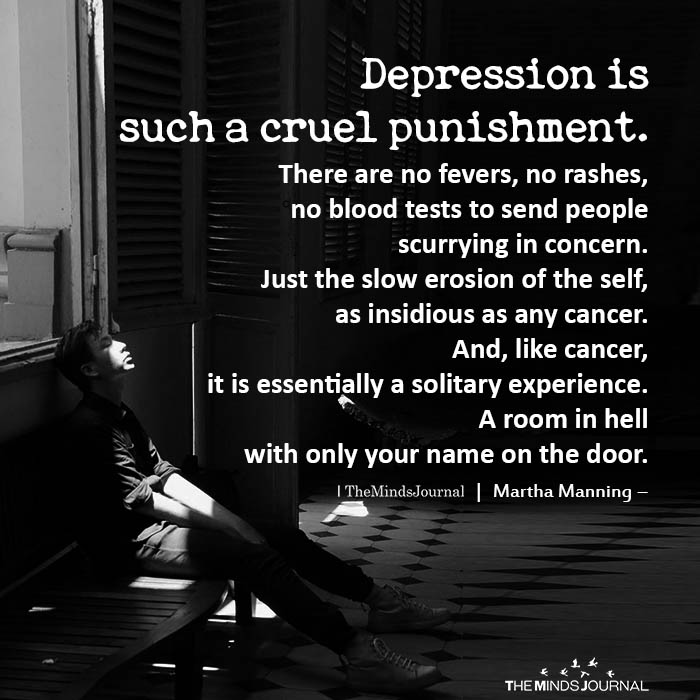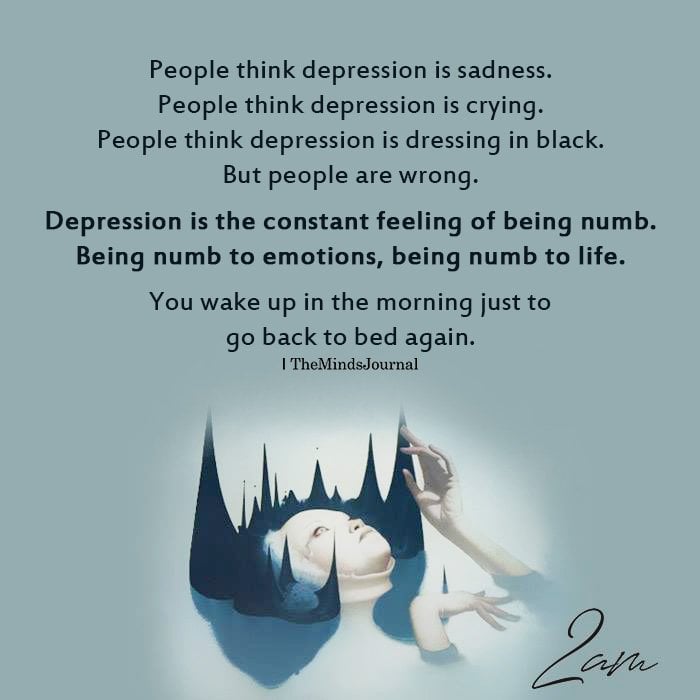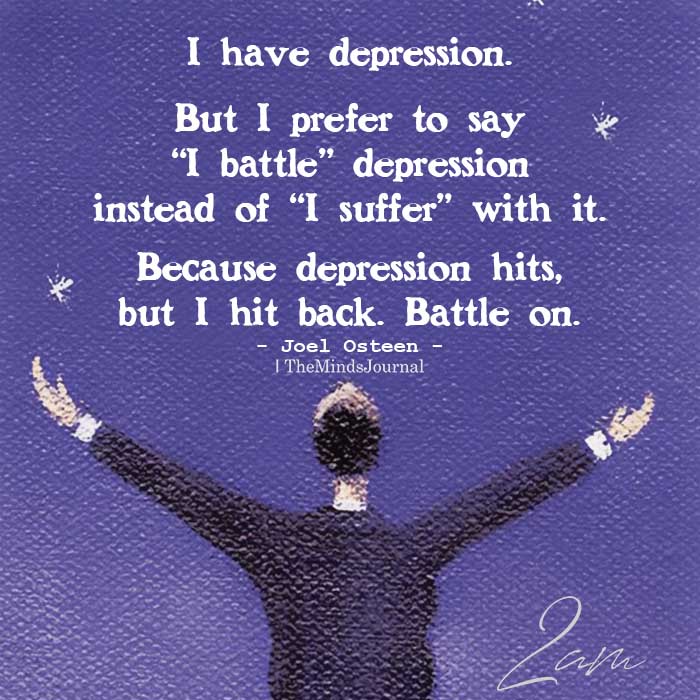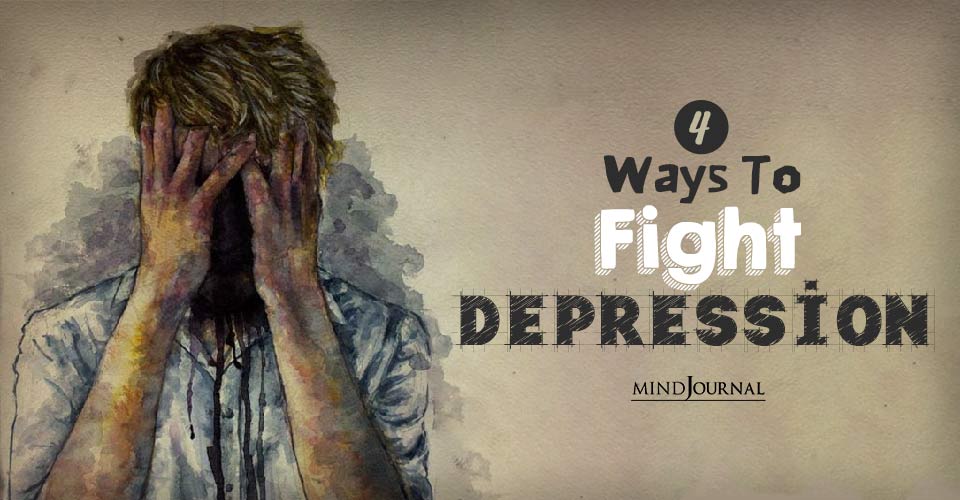First of all, if you are looking for ways to fight depression, let me tell you despite what you are going through right now…you will get over this. I know it feels like the absolute end of the world, but trust me you have the strength inside you to get through this. You may not feel it right now, but it’s there.
This, too, shall pass.
Yes. Depression sucks. I don’t need to tell you that. I personally have been struggling with depression for as long as I can remember. It’s what they call ‘Smiling Depression’. So basically I function and act normally in front of people, but what goes inside is a whole different story. To top it off, I am an introvert and suffer from social anxiety. And I even became suicidal at one point. Yeah, go figure.
Depression is the absolute worst thing you feel in your life.

It’s not that you feel sad. It’s that you feel nothing. There is just a feeling of numbness inside that makes everything look bleak and meaningless. There is always a feeling of heaviness inside that you just can’t get rid of despite your best efforts. Your mind, body, thoughts, and emotions all seem to be drained of energy. You don’t feel like doing anything and only your bed seems to offer you some solace.
You cry for no reason and hate yourself for feeling this way. You want to do something about it, you want to get out of this deep dark pit you are stuck in, but you don’t have the mental strength or willpower to do anything. You feel like you have no one to help you even though you desperately want someone to care.
Here’s the thing. They do care. And let me tell you there is a way out of this. There are ways to fight depression.
Know that there is always hope, even when your mind says otherwise.
Is It Depression?
There is a difference between being depressed and being simply upset. We can be upset about many things in life. But eventually, it passes. Depression on the other hand is a completely different feeling that goes way beyond the feelings of sadness.

So it’s important you identify the warning signs of depression. Here are a few signs and symptoms you need to look out for-
- Hopelessness
- Anger & Irritability
- Anxiety & Restlessness
- Self-Loathing
- Losing interest in daily activities
- Changing in Appetite & Weight
- Fatigue, insomnia and sleep problems
- Reckless Behavior
- Decreasing Energy Levels
- Uncontrollable Emotions
- Suicidal Thoughts & Tendencies
Read: 7 Warning Signs Of Depression That You Need To Know
You Can Fight Depression. And Win.
Once you have made sure that this feeling inside is actually depression, then you need to build up the courage to determine that you want to fight this. That you’ve had enough. That THIS version of you is not the REAL you. Then the real fight begins.

Make no mistake. This is a fight. This will not be easy and it will need you to be very strong and determined. It may take a lot out of you to survive this, but you WILL survive this.
You are a warrior. Not just a survivor. You ARE stronger than these battles of life.
How To Fight Depression?
So, here are the 4 most effective ways to fight depression.
1. Talk To Someone
It doesn’t matter who you talk to…it can be your parents, your siblings, your friend or simply someone who cares. Talk to someone you know will listen to you and then let it all out. They don’t have to understand everything you are going through. They simply need to hear you out.
The more you keep things to yourself, the worse it will get. And that was my biggest mistake. Even after having a loving family and a caring girlfriend, I decided to keep my depression to myself. I felt ashamed to talk about it. But I was so wrong. Eventually, I shared everything with my girlfriend and that’s where things started to change for me.

When you share what you are feeling with someone you trust, you feel relieved, even if for a few moments. Once they know how you feel, they will give you the love and kindness you need right now. You will know the healing power of a hug when you get one. Cry. Shout. Scream. Cuss. Or just talk. Do whatever you need to. Just let it out.
Read: The Difference Between Self-Pity, Depression or Perfectly Hidden Depression
2. Consult a Doctor
Depression is no joke. And quite frankly the BEST way to cope with depression is by seeking professional help. It doesn’t matter how many hours you research online looking for tips. The importance of consulting a doctor simply cannot be overemphasized.
Yes, you should definitely try to heal yourself and take all the necessary steps you can to empower yourself. But taking the right medication will give you the exact treatment you need right now.
In this day and age, there is no shame in visiting a therapist. The most important thing here is your mental health and your life. No one is going to think any less of you if you seek treatment. In fact, they will be proud. Once I told my girlfriend about my depression, the first thing she did was take me to a doctor. I was as reluctant and hesitant as you can imagine. I didn’t speak to the doctor even once.
But then the best thing happened. He prescribed some anti-depressants. I was skeptical as I believed that no amount of pills can fix the problems in my life or how I feel. It didn’t. But what it did do is give me the clarity and mental strength I needed to fix those problems. Medication will help rewire your brain chemistry back to normal which will give you the strength to fight back this black hole of a feeling.
However, make sure you do not dabble with antidepressants without consulting a doctor first. THIS is very important. The dosage and intensity of your medication will depend on the state of your depression. Seeking a professional is undoubtedly one of the best ways to fight depression.
3. Workout & Eat Healthy
Being a martial artist, I have always been engaged in some sort of physical activity whether it’s rigorous Kickboxing training or weight training, or simply some body-weight exercises. Exercise is one of the biggest and most effective tools that have helped me over the years to fight my chronic depression. But only when things got out of hand, I have to consult a doctor and take medication.
It doesn’t matter if you haven’t worked out a single day in your entire life. Start now. The key is to remain consistent. Take small steps and create weekly goals that you can achieve. Join a gym. Sign up for a kickboxing class. Go for Zumba. Or simply hit the road and just start running. It doesn’t matter. Just get the blood flowing and your adrenaline pumping. It will make a world of a difference in how you feel.
You also need to make sure you start eating healthier and avoid crappy junk food as much as you can. Stop binging on ice cream and chocolates. Stop ordering food online every time you feel low.
Eat food that your body needs. Educate yourself about lean protein, fats, vitamins, and minerals. And for God’s sake stay away from SUGAR. It’s a killer. Having said that it’s also important to have a cheat day and indulge a bit too.

4. Start Mindfulness Meditation
Being spiritual, I always had a keen interest in Buddhism and the Eight Fold Path. This led me to Mindfulness Meditation. Mindfulness meditation is the practice of bringing your attention to the present moment by focusing on your breath.
I started meditation at my lowest point and it gradually gave me inner peace and peace of mind that I had completely lost. No, I am not perfect right now. But I am way better than I used to be.

Is meditation one of the best ways to fight depression that you want to try? Trust me, YOU DO. If you have never meditated before or find this a bit confusing, then let me tell you mindfulness meditation is simpler than you can imagine. But it’s not easy.
All you need to do is sit down in a place where you won’t be distracted and bring your attention and awareness to your breath. You can search YouTube for some instructional videos or even try a few guided meditation sessions to get the hang of it. Just Google. It will help you to live in the present moment and experience life in its true essence…through your breath.
Read: Mindfulness Meditation For Panic Disorder Relief
Give Yourself Another Chance
Give yourself another day. You will find the courage you need. Don’t give up just yet.
Coping with depression is never easy. You will need to be determined and have enough mental strength, something you feel you don’t have at all. But you do. Trust me. It’s deep inside you. You simply need to look inside and reach for it. Coping with depression starts with self-help. But you already know that.
Your journey to get out of depression will be worth it in the end, despite how hard it gets.
Take one step at a time. Fight one day at a time. Experience life one breath at a time.
If I can do this, so can YOU.
Frequently Asked Questions (FAQs)
What is the most effective way to treat depression?
The most effective way to treat depression is the combination of antidepressants, psychotherapy, like Cognitive Behavioral Therapy (CBT). But these things will never help if you’re not ready to acknowledge your mental issues. Coping with depression starts with self-help.
What happens to the brain during depression?
The hippocampus of the brain shrinks while experiencing depression. The brain’s amygdala enlarges thus resulting in cerebral inflammation which causes functional abnormalities.
What age group has the highest rate of depression?
Depression is more prevalent among those aged 18–29 years.
Disclaimer: This article is for informational purposes only and is not intended as a substitute for professional mental health advice, diagnosis, or treatment. While we strive for accuracy, we do not guarantee the completeness or reliability of the information provided. Readers should always seek guidance from a qualified mental health professional for any concerns regarding their mental well-being.











Leave a Reply